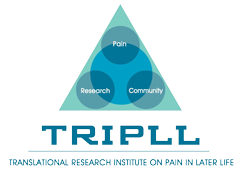Adherence to and the Maintenance of Self-Management Behaviour in Older People…
Patricia Kim2021-05-16T22:01:54-04:00Adherence to and the Maintenance of Self-Management Behaviour in Older People with Musculoskeletal Pain-A Scoping Review and Theoretical Models. Adherence to and the maintenance of treatment regimens are fundamental for pain self-management and sustainable behavioural changes. The first aim was to study older adults' (>65 years) levels of adherence to and maintenance of musculoskeletal pain self-management programmes in randomized controlled trials. The second aim was to suggest theoretical models of adherence to and maintenance of a behaviour. The study was conducted in accordance with the recommendations for a scoping review and the PRISMA-ScR checklist. Capability, motivation and opportunity were used [...]
